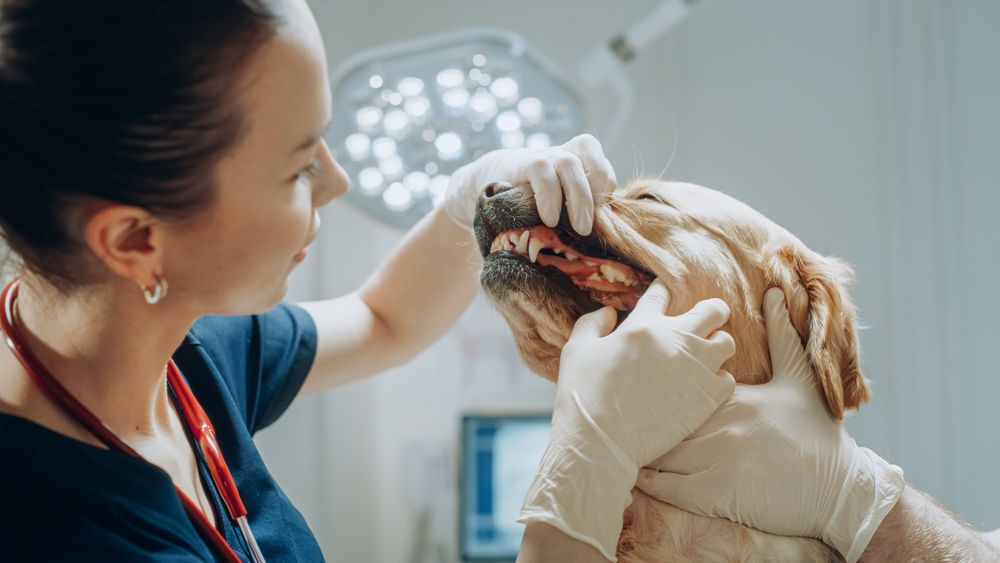Maintaining your pet's oral health is essential for their overall well-being. Periodontal disease, if left untreated, can lead to a variety of health problems, including tooth loss, infection, and even the spread of bacteria to other organs. By understanding the different dental grades and taking proactive measures to address any issues, you can help ensure your pet's long-term health and happiness.

Understanding Periodontal Disease
Periodontal disease is a progressive condition that affects the structures surrounding the teeth, including the gums, bone, and ligaments. It begins with inflammation of the gums (gingivitis) and can progress to more severe stages, ultimately leading to tooth loss if not properly managed.
Periodontal disease is primarily caused by the buildup of plaque and tartar on the teeth. Factors that can increase the risk of developing periodontal disease in pets include poor dental hygiene, genetics, age, diet, and underlying medical conditions.
Signs and Symptoms of Periodontal Disease in Pets
Pets with periodontal disease may exhibit a variety of signs and symptoms, including bad breath, red and swollen gums, broken or missing teeth, difficulty chewing, excessive drooling, discolored teeth, and even weight loss. It's important to be vigilant and regularly inspect your pet's mouth for any signs of dental issues.
An Overview of the Grading Scale
The dental grading scale is a tool used by veterinary professionals to assess the severity of periodontal disease in pets. The scale ranges from Grade I (gingivitis) to Grade IV (severe periodontitis), with each grade representing a different level of disease progression.
Dental Grade I: Gingivitis
Dental Grade I, or gingivitis, is the mildest form of periodontal disease. At this stage, the gums are inflamed and may appear red or swollen, but there is no significant loss of bone or attachment around the teeth.
Dental Grade II: Early Periodontitis
Dental Grade II, or early periodontitis, is characterized by the beginning stages of bone and attachment loss around the teeth. The gums may still appear inflamed, and pockets may form between the teeth and gums.
Dental Grade III: Moderate Periodontitis
Dental Grade III, or moderate periodontitis, involves more significant bone and attachment loss, leading to deeper pockets between the teeth and gums. The gums may appear severely inflamed, and the teeth may become loose.
Dental Grade IV: Severe Periodontitis
Dental Grade IV, or severe periodontitis, is the most advanced stage of periodontal disease. At this stage, there is extensive bone and attachment loss, and the teeth may be severely loose or even falling out. The gums may appear severely inflamed and may bleed easily.
How to Prevent Periodontal Disease in Pets
Preventing periodontal disease in pets involves a combination of regular dental care, proper nutrition, and routine veterinary check-ups. First, establish a habit of brushing your pet's teeth daily using pet-safe toothpaste and a soft-bristled toothbrush to remove plaque and prevent tartar buildup. Providing dental chews and toys can also help keep their teeth clean by promoting chewing, which naturally reduces plaque. A balanced diet that supports dental health is essential, so consult your veterinarian for recommendations.
Additionally, schedule regular dental exams and professional cleanings with your vet to catch and address any early signs of periodontal disease. Regular professional dental cleanings involve the removal of plaque and tartar buildup, as well as the polishing of the teeth to smooth the surface and prevent future accumulation.
Taking Care of Your Pet's Oral Health
Maintaining your pet's oral health is a crucial aspect of their overall well-being. By understanding the different dental grades and taking proactive measures to address any dental issues, you can help ensure your furry friend's long-term health and happiness.
If you're concerned about your pet's oral health, schedule an appointment with True Animal Vet today. We can assess your pet's dental condition, provide personalized recommendations, and help you take the necessary steps to keep their mouth healthy. Contact our clinic in The Woodlands, Texas (77381). Call (281) 867-5968 or text (281) 916-3282 today.










